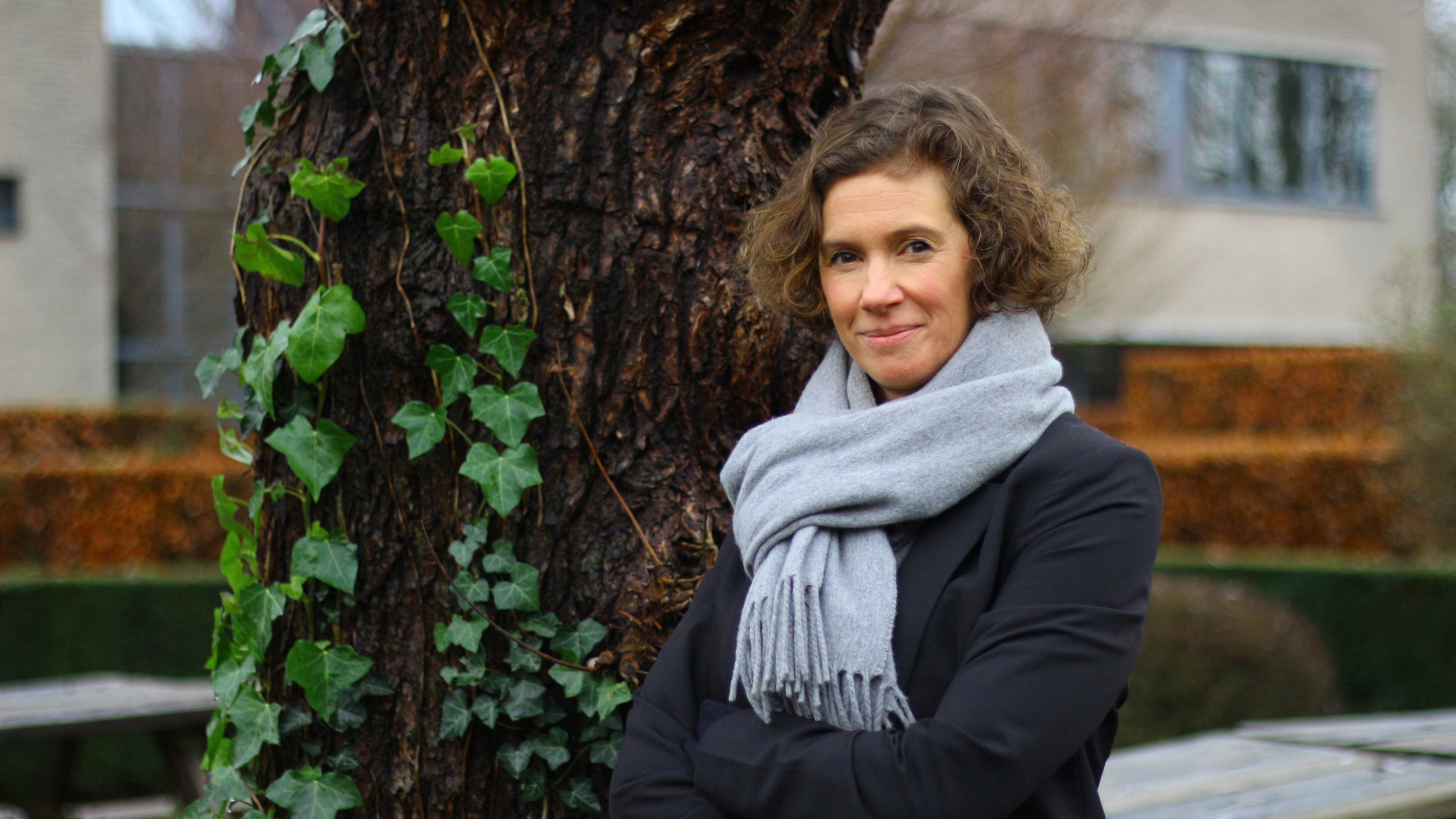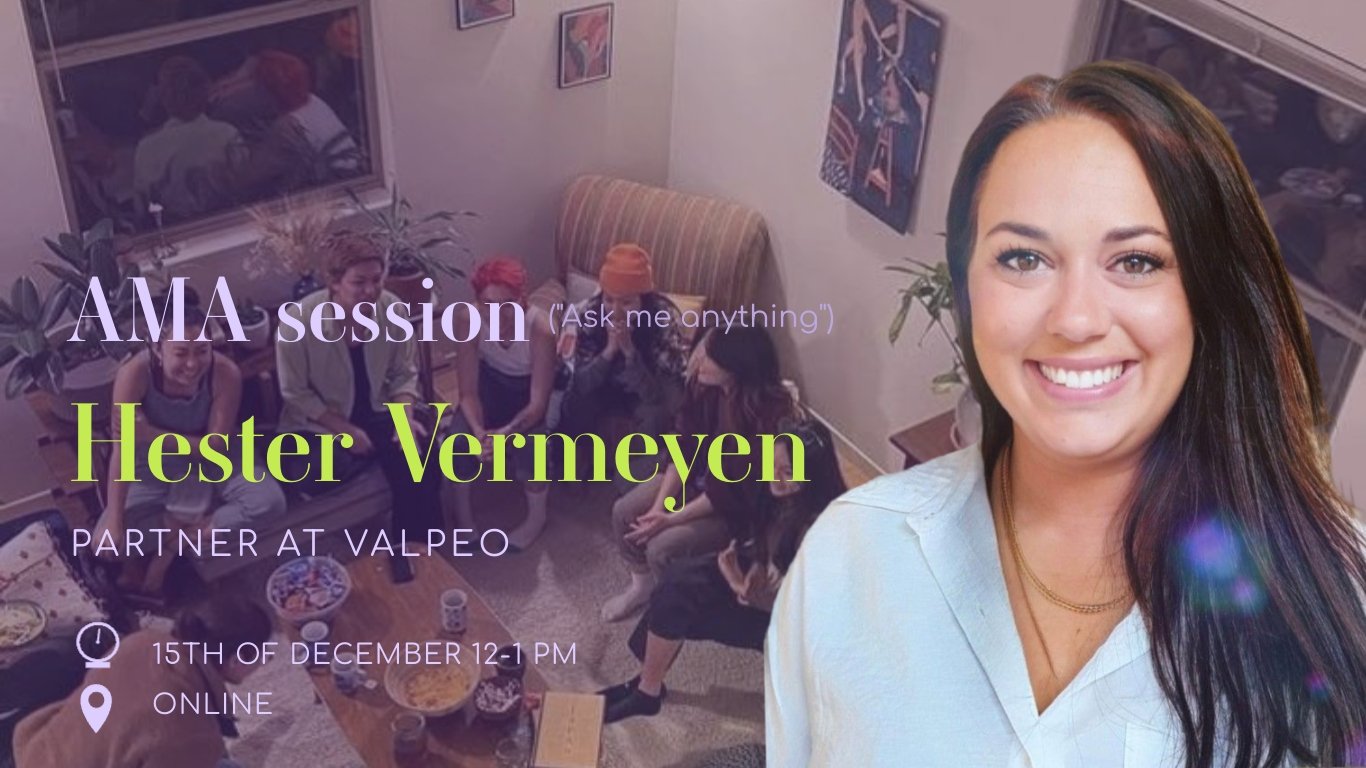Bloom: Sophie Angenot
Tech entrepreneur Sophie Angenot, believes in the human side of data: "My focus is first and foremost on people, and then on technology."
What started with an innovative idea grew into a successful data governance company. For Sophie Angenot, however, going into business in the tech sector was not a logical choice. "I don't come from a nest of entrepreneurs and I doubted for a long time whether I was ready to lead a company," she says. Today, as CEO of QuaData, she is a reference person in the field of data management and the human side of data. "Good data management depends on people working together. Technical tools are indispensable for data governance. But they only work if you know who uses the data and what for, and in what way data is exchanged between people."
For the beginning of QuaData, we go back to 2014. At that time, there was very little around data governance in the Belgian market. "Back then, if you typed in the term 'data governance' on LinkedIn, you got maybe 10 or 20 people working on it. However, it is not new, it has been around for more than 30 years. But companies were not yet consciously working on it," says CEO Sophie Angenot, who became fascinated by data at a previous employer.
Bitten by data
After a few other jobs, Sophie started working at WDM Belgium (now Black Tiger), a company that processes and sells data for marketing purposes and quality services. With her customers, she saw that there was a lot of potential in that data."Data is the new oil: was the motto at the time.
More and more companies realized the value of data and what they could do with it. But I noticed that they were struggling to effectively implement their plans and ideas," she explains the genesis of her passion for data. What policies does a company implement around data, how is it organized and what responsibilities fall to which people? It fascinated her immensely.
Good data management requires people to work together
Curious as she is, she began to read and learn a lot about it. From her research and experiences with clients at her employer, Sophie found that the difficulties companies have in dealing with data are often related to differences in interpretation. This quickly led her to the human side of data: good data management requires people to work together.
"Many companies consist of different departments, all of which have their own data. This structure is logical on the one hand because each department has specific expertise and knowledge. On the other hand, it works counterproductively: the data is only managed from the needs of the own department, while all teams - from sales and order management to customer service and invoicing - should use each other's data for optimal customer service."
"What a company needs is efficient organization of the entire data flow across silos. With this data, people need to learn to collaborate, not just within their own team, as they are used to, but with all departments of the company."
Human data management
This insight did not leave her and she kept thinking about it. "What data does a company have, where is that data located, what people are using it? These are all important questions. But few companies have a good overview of their data structure and organization."
"I realized that there was a need to bring clarity to an abstract and complex fact," says Sophie, who saw great potential in training and mentoring people and organizations to implement human policies around data."
"For me, successful data management focuses on organization and structure. Of course, technical tools are important, but they only work if the people are with them. Only when we know what problem we want to solve and who can best do it, do we start selecting the appropriate tools. Because that market is very large, from a scooter to a Rolls Royce. And after all, not everyone needs a Rolls."
Initially, Sophie searched for a company where they did something like this, unfortunately to no avail. So she decided to take the plunge and became a freelance consultant to put her knowledge and insights about data governance at the service of companies.
"That was pretty exciting, after all those years in salaried employment. I don't come from an entrepreneurial family. Especially my father felt that I shouldn't give up my job security, nice salary and company car just like that. I hesitated for a long time, but at 40 I was like: it's now or never," she says.
Now or never
Sophie started out on her own, but it soon became apparent that she needed more people for the projects she wanted to do. "I thought a lot about what my own company would look like. I had a good idea that it would revolve around data governance with a focus on the human aspect."
"For a long time I didn't think I could do it, until I co-organized the JCI World Congress in Belgium in 2011. With a team of 5, we brought together 4,500 people from 100 countries from all over the world for a whole week in Belgium. Doing this made me realize: I can do this, so I can run my own business," she says.
"During that period, she also came into contact with the people at growth partner Inkubis. They encouraged her to set up a company within the Cronos Group tech ecosystem around data management and data quality. Thus QuaData was born in 2014."This got me into the technology sector, even though my focus was primarily on people and then technology."
QuaData is part of the Cronos Group. It is a modern form of entrepreneurship because you are already starting up in an ecosystem of companies, which allows you to build your first use cases very quickly and then grow further.
"It is indeed a 'comfortable' way to start a company because the group takes care of a lot of things for us, such as recruitment, fleet management, financial aspects ... But I still have to put my idea on the market AND it has to work, of course. Sit back and relax is definitely not on the agenda," she explains. "I wouldn't want to either!"
Interactive process
QuaData was immediately running at full speed. "After a month there were already 2 of us. Finding clients was never difficult: the market for data governance is big and we bring a different story than the players who approach data governance in the traditional way, with a technical approach. QuaData represents a form of governance that fits a company's needs and culture. We adapt and think along with what our clients want to achieve. Instead of 'here's the plan and just implement it,' with us it's an interactive process, and that resonates with many companies."
The biggest challenge Sophie experiences is finding the right people. There are not many people in Belgium yet with extensive experience in data management, and many of them, moreover, focus on the technological side. "This is why we also hire people with less knowledge and experience, but with great interest and strong communication skills, whom we train thoroughly in-house. We offer them many opportunities for growth and try to be an attractive employer, to prevent them from going elsewhere. With the current war for talent, this is very challenging," she explains.
Today QuaData has a team of seven, almost all women. "Recently I recruited our first male colleague. It's not a conscious decision to build a predominantly female team, because I would like everything to be more balanced. But I think the human aspect of our approach and the importance of communication resonates more with women, while men are more attracted to the technical. It's a cliché, but it seems to be true," says Sophie, who is proud of what she and her team have already accomplished since 2014.
I don't want to grow "for the sake of growing. It has to be meaningful and useful, always with a focus on the human aspect and cooperation between people.
What started with her "small idea" has already made a big impact for leading companies such as Liantis, Brussels Airport and Vandemoortele. She would like to grow QuaData to a team of 20 people. "But I don't want to grow 'for growth's sake. It has to be meaningful and useful, always with a focus on the human aspect and cooperation between people. Because that's how we differentiate ourselves in the market."
Reference person
'Data governance is complex and expensive, so nothing for us': it's a view unfortunately still held by many companies. Sophie is trying to change that, by transferring her sparkle not only to her clients and employees, but also on a larger scale. "I think it's important to make my experience and expertise visible and share it, for example on LinkedIn. There is already more awareness among companies today, not only more large companies, but also more and more SMEs."
"I hope I can ensure that even more attention is paid to the human side of data. Who knows, maybe this could even have an impact on the tech sector in general, and so more innovation will come about in terms of the human aspects in tech. My big dream is to write a book about this one day. But unfortunately I can't write well," she says, laughing.
Fortunately, she can explain it well, we have already noticed during this conversation. "Indeed, I used to do a lot of keynotes, I really enjoy doing that. It has diminished due to busyness and corona. But soon I will be heard at IRM UK's Data Governance Conference in London," says Sophie, who has become a data governance reference person.
"It gives me a lot of energy to turn a complex and abstract fact into a manageable story. I notice that companies are looking for clarity, so I am convinced that the need for our expertise will not disappear any time soon."
This Bloom story is a collaboration between Bloovi & Clusity. Together with we want to inspire, connect and support even more women. Sophie's story can be can be read here via Bloovi 🥰










